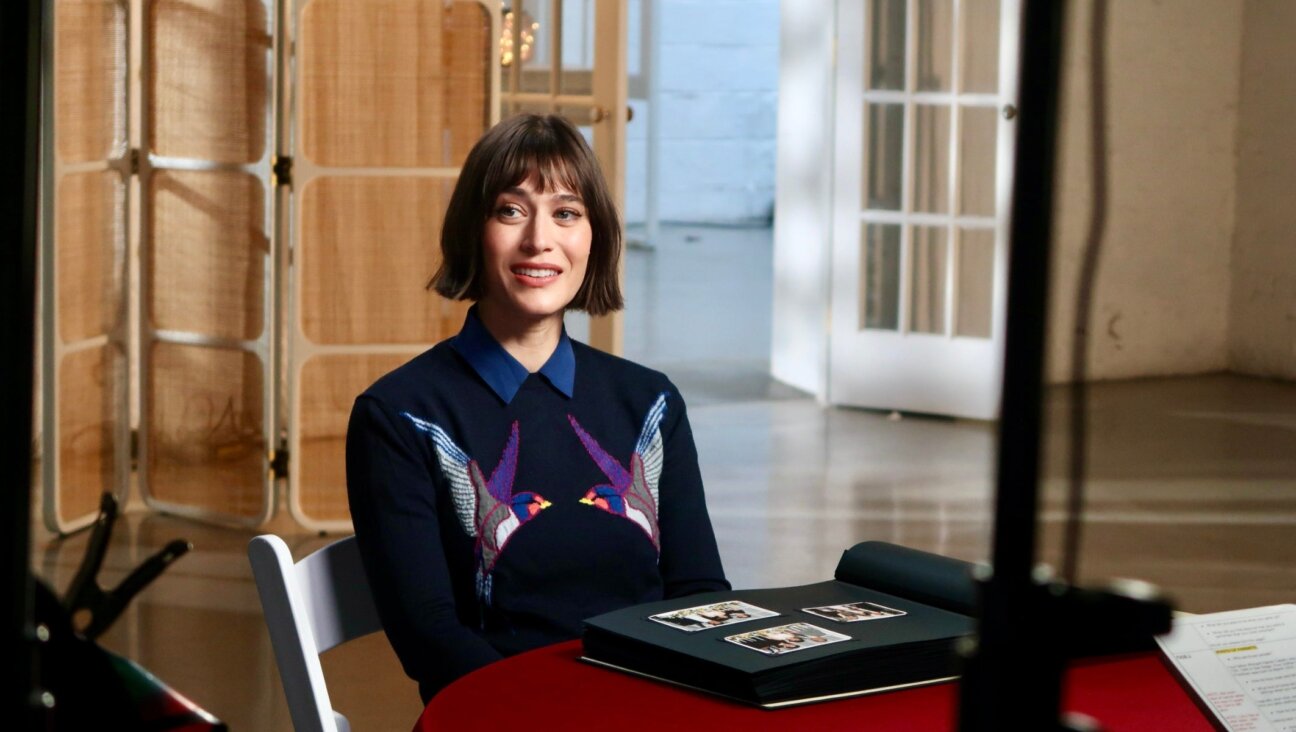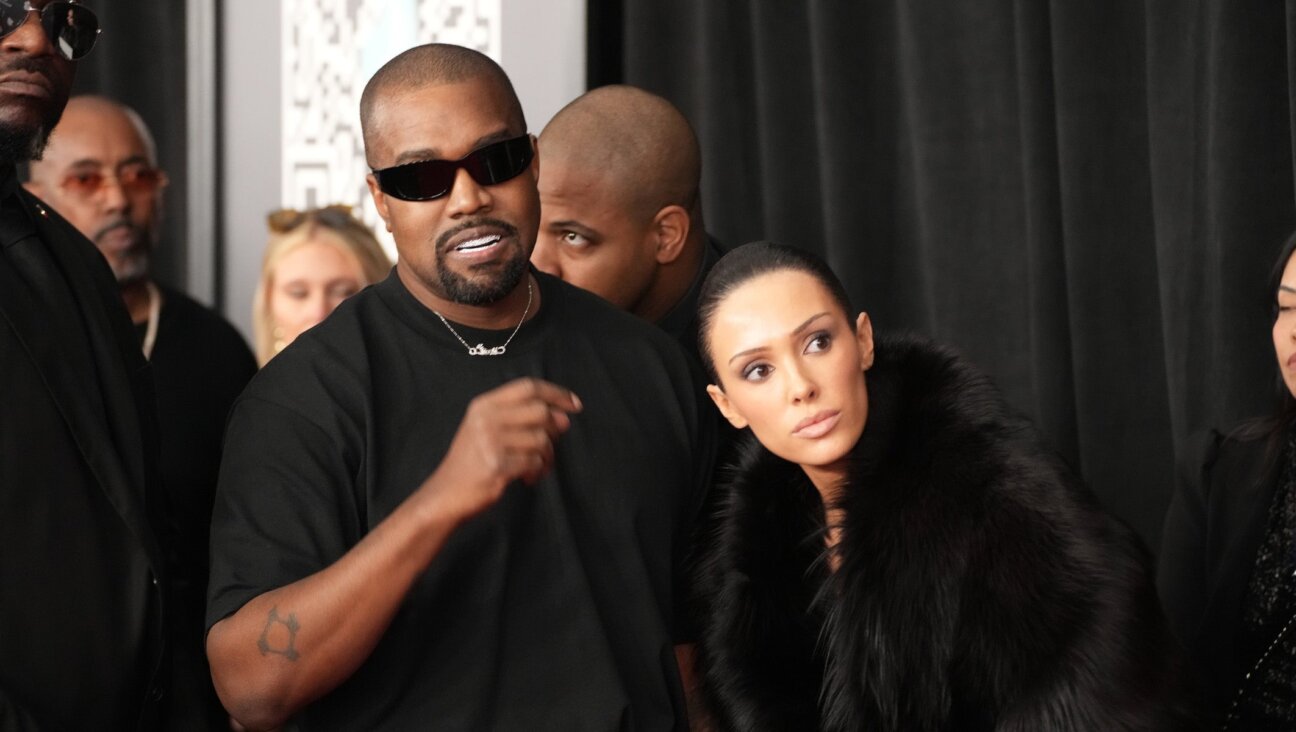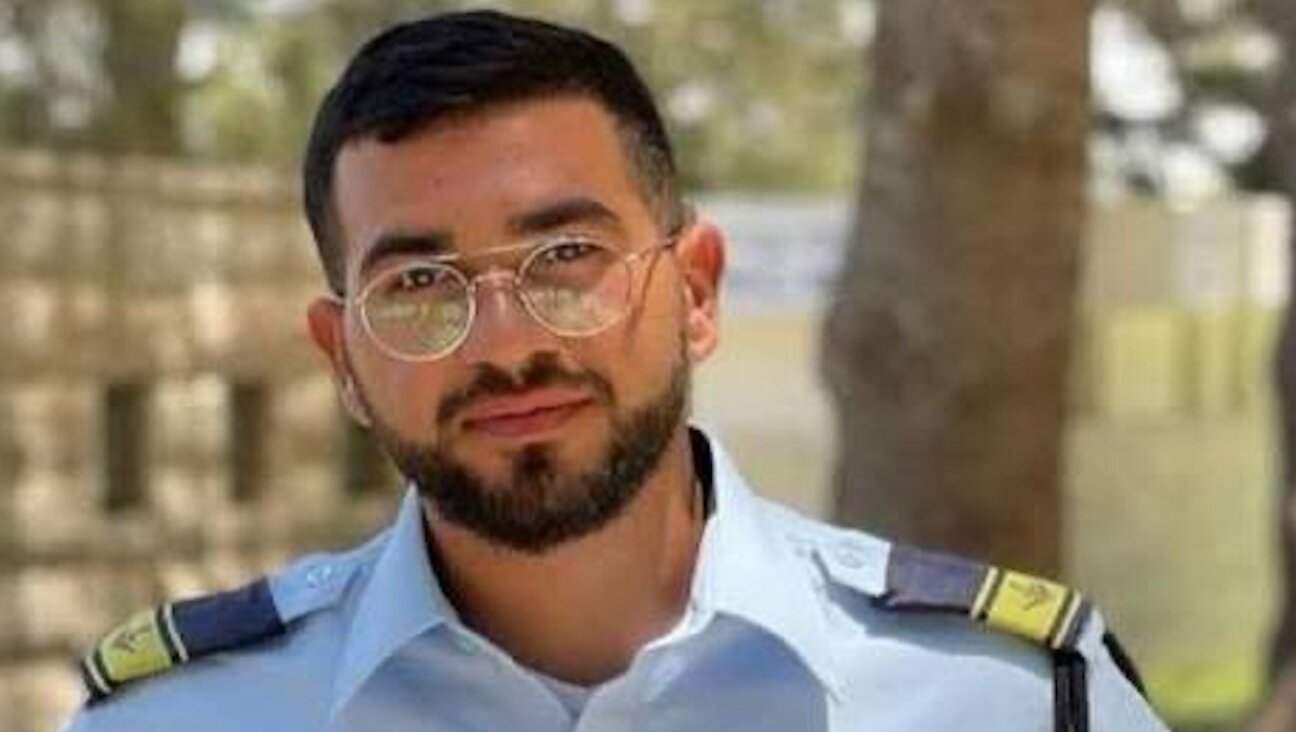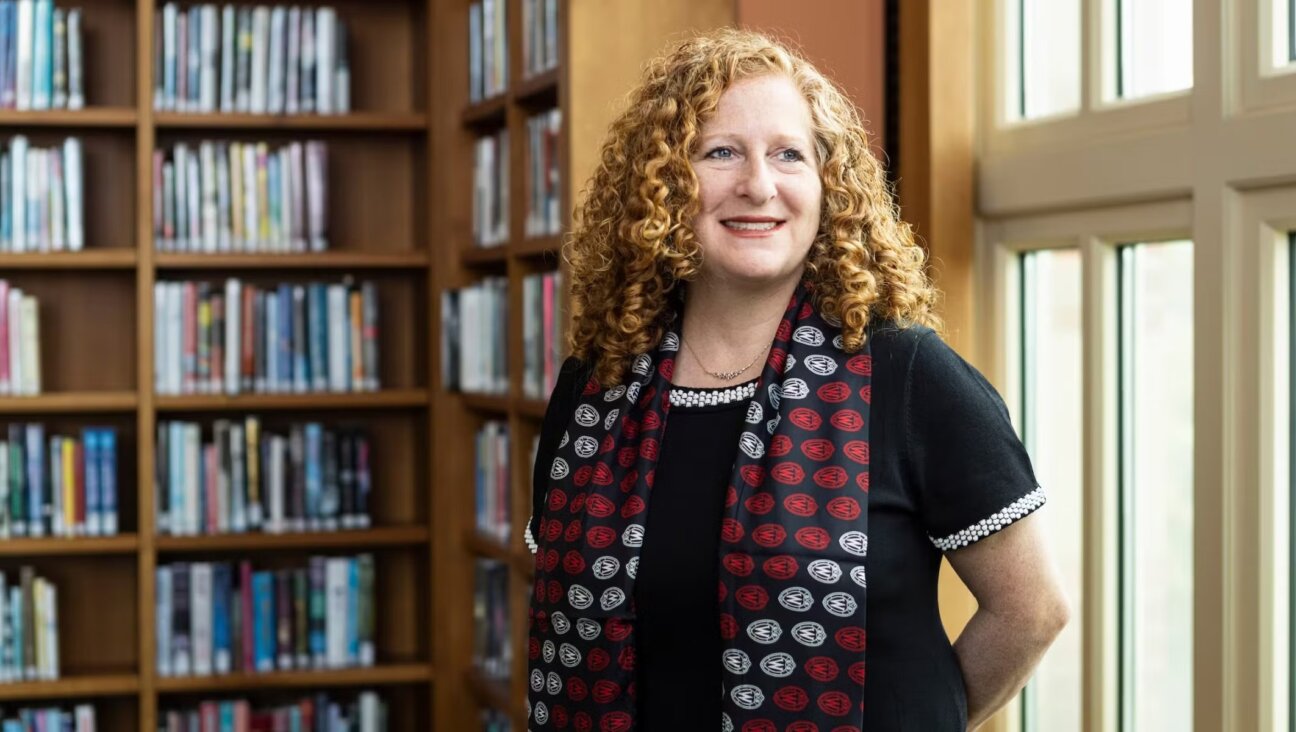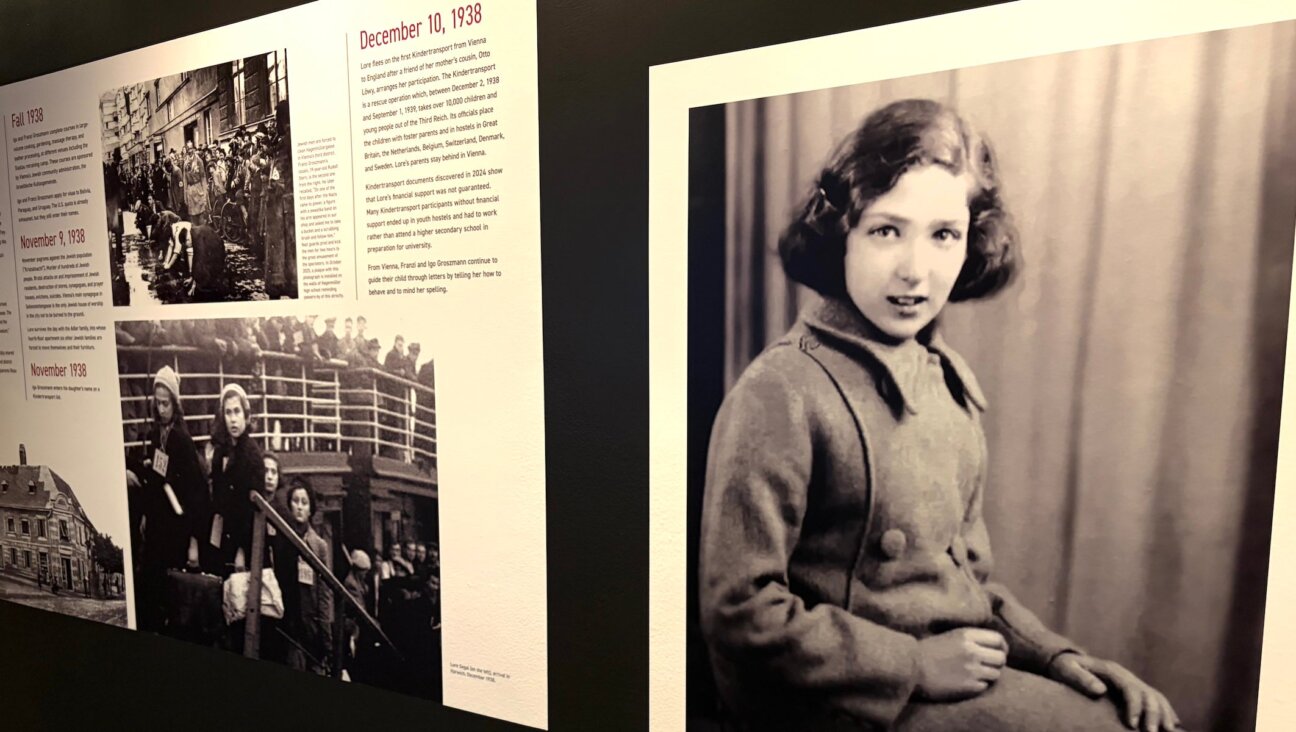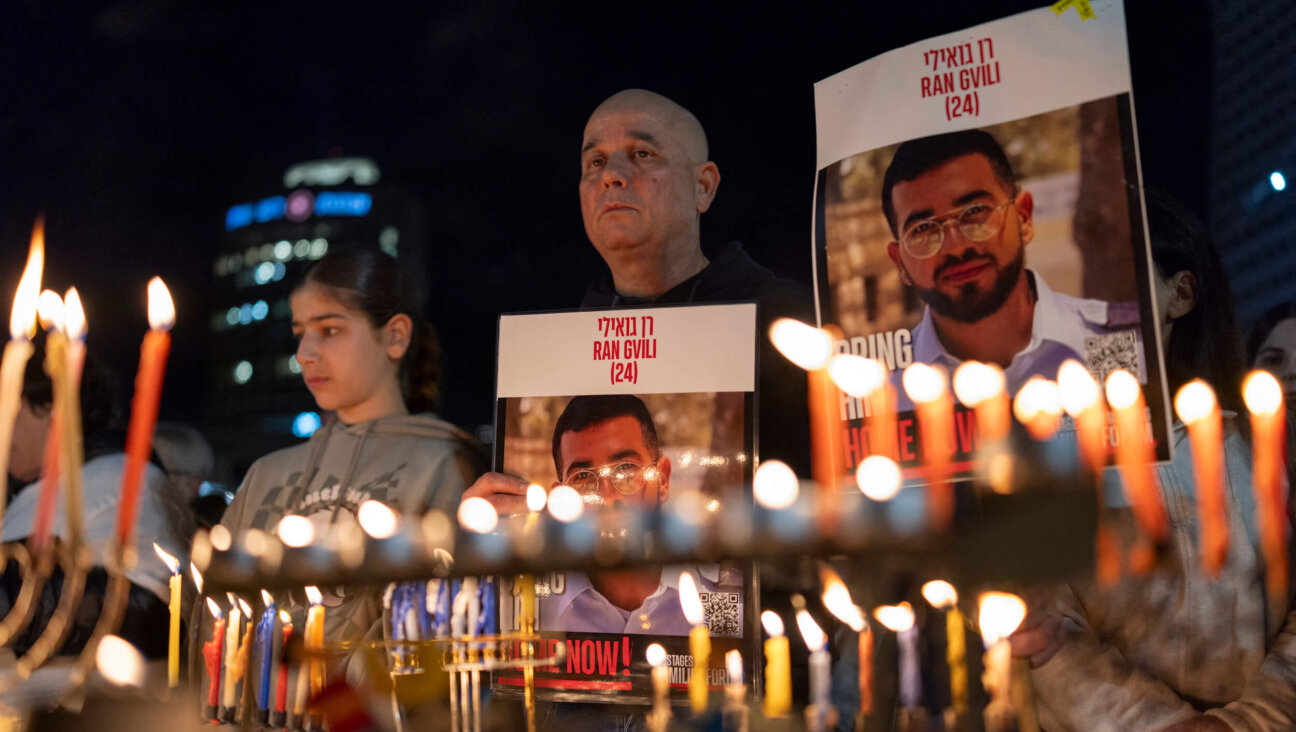Jewish Groups Had Complex Relationship with Nelson Mandela

Image by Getty Images
The American Jewish Committee praised Nelson Mandela’s “quiet strength and dignity” in a statement marking his death, but neglected to mention the time they canceled a dinner honoring him in a fight over an Iranian espionage trial.
American Jewish groups issued warm remembrances of Mandela as news of his death at the age of 95 spread on December 5. But those same organizations have had a complicated relationship with the former South African president — a relationship that often soured over Mandela’s sympathy for the Palestinian cause.
“On the one hand we have Mandela, the brilliant, courageous, leader of a struggle for civil rights,” said Rabbi David Teutsch, who heads the Center for Jewish Ethics at the Reconstructionist Rabbinical College. “And on the other hand we have the Mandela who sometimes understands Israel as a colonialist power. Therein lies the tension.”
American Jewish groups’ relationship with the anti-apartheid hero grew difficult almost as soon as he was released from prison in 1990, where he had been held by the South African apartheid regime for 27 years.
Jewish groups criticized Mandela for praising the Palestinian Liberation Organization in a flap that took place just a month after Mandela regained his freedom.
Months later, at a meeting in Geneva, American Jewish leaders came to an understanding with Mandela. When he arrived for his June 1990 visit to the United States, leaders of the Conference of Presidents of Major American Jewish Organizations and the Anti-Defamation League traveled to Kennedy Airport to meet his airplane.
According to a JTA report published at the time, the Zionist Organization of America was the only major group that actively refused to attend the celebrations surrounding the June 1990 trip. (The ZOA currently has no statement on their website about Mandela’s death.)
Even during that first 1990 visit, the tensions over Mandela’s views on Israel weren’t far beneath the surface. At the start of his visit, Mandela told a TV audience that he thought of PLO leader Yasser Arafat as a “comrade in arms,” drawing renewed criticism from some Jewish leaders.
The roots of the mutual suspicions between the Jewish leadership and Mandela were deep. Jews were on both sides of the battle over South African apartheid, both in South Africa and around the world. “There were progressive Jews in South Africa who played a key role as whites in supporting Mandela and the early efforts of the ANC,” Teutsch said. “There were also establishment whites in the Jewish community who supported the status quo… And of course both of those groups appealed to Jews elsewhere for their support.”
Israel had a military relationship with the apartheid regime, offering to sell them nuclear arms in 1975. At the same time, many Jewish organizations in the U.S. actively opposed Mandela’s imprisonment. In 1986, B’nai Brith urged then-South African president P.W. Botha to free Mandela.
The Anti-Defamation League was accused by the San Francisco district attorney of selling stolen information on California anti-apartheid groups to the South African apartheid regime. The organization settled the [lawsuit][8] in 1999.
Relations between American Jewish groups and Mandela may have hit a low point in 2000, when the American Jewish Committee cancelled a planned dinner just days before it was to take place at which Mandela was set to be honored with a human rights award.
According to a JTA story published at the time, Mandela defended an espionage trial in Iran of 13 Iranian Jews as “free and fair.” The AJC immediately called off the dinner.
“It’s very disturbing,” Conference of Presidents executive vice chairman Malcolm Hoenlein at the time.

